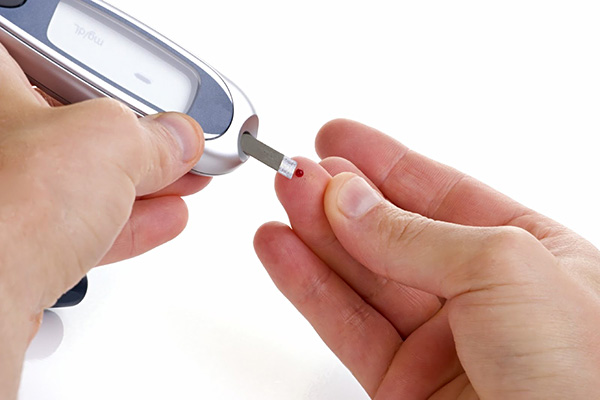Treatment for adults:
All patients with type 1 diabetes must be chronically treated (lifetime) with insulin – to maintain blood glucose levels as close to the target value.
Insulin treatment involves:
– Daily insulin injections or the use of an insulin pump;
– Ambulatory monitoring of blood glucose testing;
– Maintaining a healthy diet in which carbs are distributed throughout the day – to avoid the sudden increase of blood sugar immediately after meals;
– Regular schedule of exercise, because physical activity increases the effectiveness of insulin;
– Regular medical control which monitors and adjusts the treatment. Screening tests and visual examination are mandatory and are performed in order to prevent the onset of chronic complications of diabetes: retinopathy, nephropathy, neuropathy, cardiovascular;
– Stopping smoking;
– Limiting alcohol intake – alcohol consumption increases the risk of hypoglycemic coma.
Many patients are diagnosed with diabetes after emergency hospitalization for diabetic ketoacidosis (DKA). If symptoms are severe, they should be transferred to an intensive care unit. Diabetic ketoacidosis (DKA) treatment requires administration of infusion fluids to control dehydration and electrolyte balance, and intravenously administered insulin to decrease marked hyperglycemia and curb excess production of ketone bodies.
Treatment for children:
Type 1 diabetes in children includes the same measures as in adults, in order to maintain the blood sugar within normal limits. In addition, other measures are needed to allow normal growth and development parameters.
Prophylaxis:
Currently, there are no prophylactic treatment of type 1 diabetes, however, researchers are trying to find ways of prevention in patients with genetic predisposition to the disease. Those with a family history (brothers, sisters, parents) of insulin-dependent diabetes, who want to participate in clinical trials will address specialized doctor, asking to be screened for anti-beta cells, because their presence in serum increases the risk of developing the disease.
Animal studies and clinical trials performed in humans have shown that low-dose insulin administered orally or by injection may prevent the development of type 1 diabetes. However, a study conducted on a large lot, has shown that occurrence of insulin-dependent diabetes is not prevented or delayed. In another study, in which insulin was administered orally, it was only observed that the onset was delayed.
In a survey conducted on children who received vitamin D supplements, was observed a reduced risk of developing diabetes. However, excess of vitamin D can be harmful, therefore, this is not recommended, except in the case of deficiency of vitamin D.
Vaccination is not correlated with an increased risk of diabetes, so children with risk factors for type 1 diabetes may be undergoing mandatory vaccination.
People with type 1 diabetes can prevent or delay chronic complications thereof:
– Diabetic nephropathy, retinopathy, neuropathy and cardiovascular disease by keeping blood sugar levels normal. They will be subject to regular medical control to be detected early signs and symptoms of these complications. In case of early detection and treatment, induced organ damage can be stopped, their evolution can be slowed or even the lesions may be reversible;
– Chronic conditions such as hypertension or hypercholesterolemia should be treated with drugs. Stopping smoking reduces the risk of these complications;
– Other health problems can increase the risk of developing superimposed chronic complications;
People with insulin-dependent diabetes will be subject to annual influenza and pneumococcal vaccination once every five years. Pneumococcal polysaccharide vaccine prevents illness caused by pneumococcus, common in diabetics with heart and kidney disease, increasing the risk of installation complications, hospitalizations, and mortality of influenza and pneumococcal infections.
Surgery:
Surgery is indicated only in exceptional circumstances:
- Pancreas transplantation can be performed simultaneously with kidney transplantation;
- Islet transplantation is a method still in research;
- Pancreas transplantation is a very expensive therapeutic modality. After surgery, chronic administration (for life) of immunosuppressive medications is recommended to prevent rejection of the transplanted organ.

